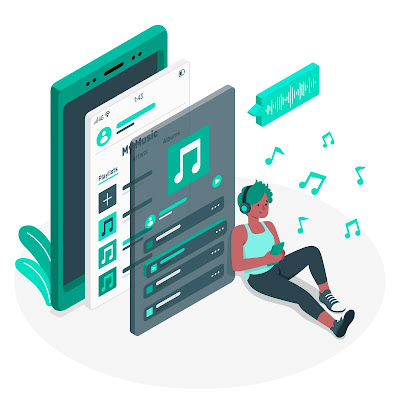In the fast-paced realm of mobile app development, staying ahead of the curve is essential to stand out in a crowded marketplace. With the rising prominence of artificial intelligence (AI) and its integration into various facets of technology, developers are constantly seeking innovative solutions to enhance user experiences. One such solution that has gained traction is the Chatbase mobile app, offering developers valuable insights and tools to optimize their apps effectively.
Understanding Chatbase:
Chatbase is an AI-powered analytics platform developed by Google, specifically tailored to enhance conversational experiences within mobile apps. It provides developers with in-depth insights into user interactions, allowing them to analyze, optimize, and iterate upon their chatbot or conversational interface effectively. With its user-friendly interface and powerful analytics capabilities, Chatbase empowers developers to create more engaging and intuitive user experiences.
Key Features of Chatbase:
Conversational Analytics:
Chatbase offers comprehensive analytics for understanding user interactions within chatbots and conversational interfaces. Developers can track metrics such as message volume, user engagement, retention rates, and user satisfaction scores. These insights enable developers to identify patterns, optimize conversations, and improve the overall user experience.
Intent Analysis:
Understanding user intents is crucial for building effective chatbots. Chatbase employs AI algorithms to analyze user messages and identify underlying intents accurately. Developers can leverage this feature to optimize chatbot responses, personalize interactions, and tailor the user experience to individual preferences.
Sentiment Analysis:
Chatbase incorporates sentiment analysis capabilities to gauge user sentiment and satisfaction levels. By analyzing user messages, developers can identify positive, negative, or neutral sentiment trends, enabling them to address user concerns promptly and enhance overall satisfaction.
Conversation Flow Visualization:
Visualizing conversation flows is essential for identifying bottlenecks and optimizing user journeys. Chatbase provides intuitive visualization tools that enable developers to map out conversation flows, identify common paths, and pinpoint areas for improvement. This visual representation facilitates data-driven decision-making and streamlines the optimization process.
Integration Capabilities:
Chatbase seamlessly integrates with popular messaging platforms and chatbot frameworks, including Facebook Messenger, Slack, and Dialogflow. This integration allows developers to gather insights across multiple channels, consolidate data effectively, and streamline the optimization process.
Real-time Monitoring:
Real-time monitoring is vital for detecting issues and responding to user feedback promptly. Chatbase offers real-time analytics dashboards that enable developers to monitor chatbot performance, track key metrics, and identify emerging trends in real time. This proactive approach empowers developers to address issues promptly and ensure optimal performance.
The Impact on Mobile App Development Companies:
For AI app development companies and mobile app development companies alike, integrating Chatbase into their development workflow offers several key benefits:
Enhanced User Engagement:
By leveraging Chatbase's analytics capabilities, developers can gain deeper insights into user behavior and preferences, enabling them to create more engaging and personalized experiences. This enhanced user engagement can lead to higher retention rates, increased user satisfaction, and ultimately, greater success for mobile apps.
Streamlined Optimization Process:
Chatbase streamlines the optimization process by providing developers with actionable insights and visualization tools. By identifying areas for improvement and iterating upon chatbot interactions, developers can continuously enhance the user experience and stay ahead of evolving user expectations.
Data-driven Decision Making:
With access to comprehensive analytics and real-time monitoring capabilities, developers can make data-driven decisions throughout the app development lifecycle. This proactive approach allows companies to identify trends, address issues promptly, and make informed decisions to drive app success.
Competitive Advantage:
Integrating Chatbase into mobile app development processes can provide companies with a competitive advantage in the marketplace. By delivering more intuitive and engaging user experiences, companies can differentiate their apps from competitors, attract a broader user base, and foster long-term customer loyalty.
Improved ROI:
By optimizing user interactions and enhancing user satisfaction, companies can achieve a higher return on investment (ROI) for their mobile app development efforts. The insights provided by Chatbase enable companies to allocate resources more efficiently, prioritize feature development, and maximize the impact of their app investments.
Conclusion:
In the ever-evolving landscape of mobile app development, staying attuned to user needs and preferences is paramount. Chatbase empowers AI app development companies and mobile app development companies to gain deeper insights into user interactions, optimize chatbot experiences, and deliver more engaging user experiences. By leveraging Chatbase's analytics capabilities, companies can streamline the optimization process, make data-driven decisions, and ultimately, achieve greater success in the competitive mobile app market. As AI continues to reshape the future of mobile experiences, integrating Chatbase into development workflows will become increasingly indispensable for companies seeking to innovate and thrive in the digital age.
Read More About This Post: Cost to Build an AI Chatbot Generator App Like Chatbase





